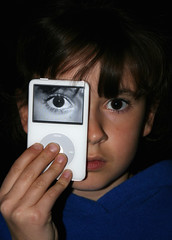[This is adapted from an email I sent to Chris and Michele.]
Spring Break is hitting our three schools in Denver, Honolulu, and Seoul in three different weeks. Another wrinkle in Flat World collaboration. Honolulu starts Spring Break this week.
It's not a bad thing, from a writerly view. One week off is good. But
three weeks off? Uh-oh.
Anyway, concerning the current week, when Honolulu is off the radar, here's what I'm telling my kids:
Hemingway himself said that he lets drafts sit for a couple of weeks so he forgets what they look like. Then, when he re-visits them, he first pulls out his (and I quote) "Shock-proof sh#t- detector" before reading them.
Because he hasn't looked at his draft for so long, the bad parts really jump out at him. It helps him see what needs work.
So a one-week hiatus (and Michele, you and I need to coordinate our own Spring Breaks and find a way not to let this sit
too long) is good.
That will give us time to breathe, figure out who should be "fired" (if necessary), and prep some exercises for word choice, sentence fluency, and conventions.
Also, I'm going to start my editors interviews. Announcing it tomorrow: prepare resume (our college counselor just hooked the freshmen up with an online resume builder, so why not hook into that), samples of blog and other writing work, and samples of good peer editing from the project.
Expectations? Maybe two conference calls: first for our student editors to plan the process; second, for them to discuss and select submissions? Both to be podcasted as digital portfolio bullets of authentic publishing experience?
How does that sound? Can we set April 1 as the deadline to have our student editors selected? April 7 as the date (roughly) of their first conference call?
One problem: Skype conferencing only allows 5 callers maximum. That means one school either only selects one editor, or else we find a creative solution to enable more (for example, two students using a line-in headphone splitter (double jack) to plug two headphones into one computer).
Thoughts?
 Imagine the '07-'08 mix for this project. We can all change partners.
Imagine the '07-'08 mix for this project. We can all change partners. In order to create a truly exciting and enticing story for their
In order to create a truly exciting and enticing story for their 





